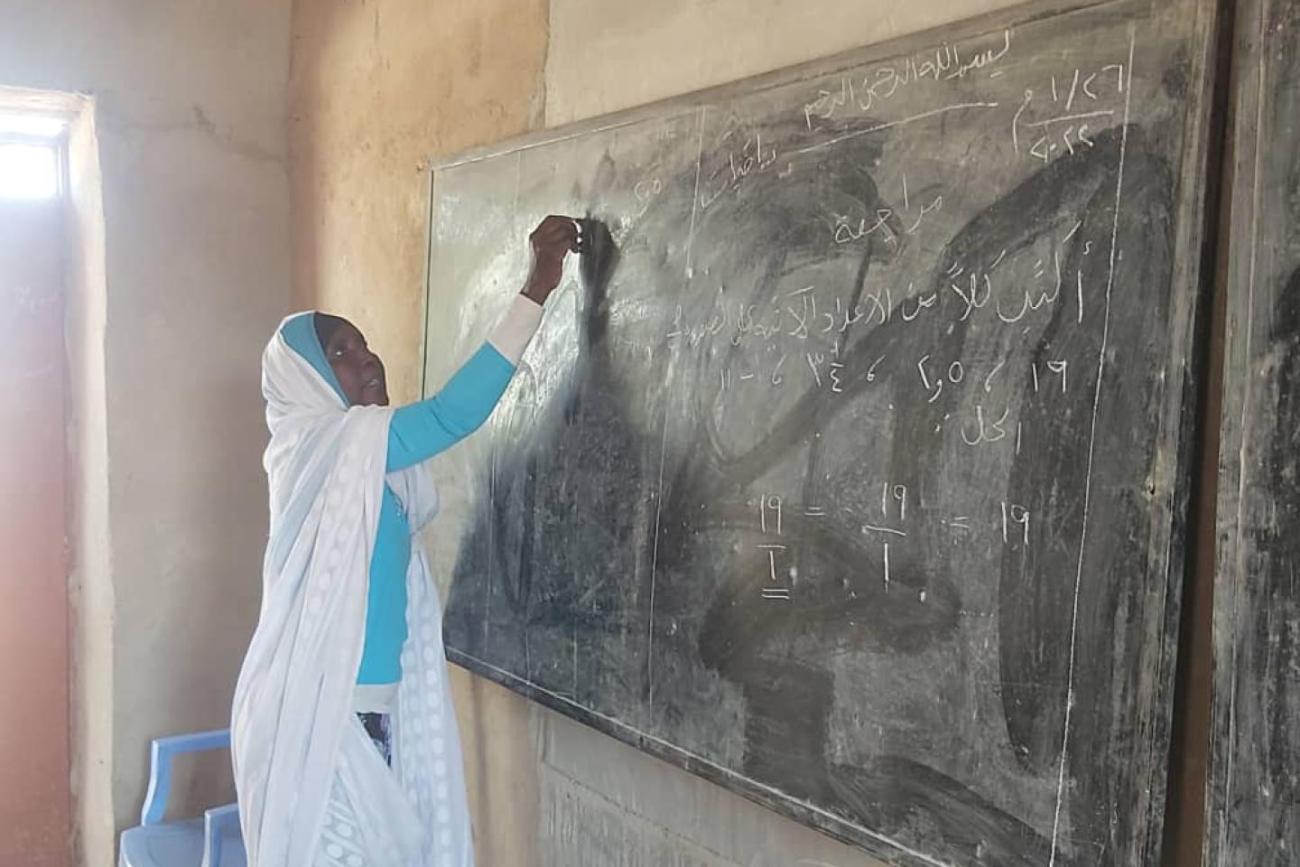Improving the quality of education by supporting teachers in South Darfur

The European Commission Supports Emergency-Affected Children in South Darfur to Access Quality Education through Incentive Payments to Teachers
By Josephat Mukhanji
Tucked away in a remote village in El-Radoum village in South Darfur state in Sudan is Beliel Mixed Basic Education School. Established in 2018 to cater to about 100 students, the school now boasts of 783 students, including 124 South Sudanese refugees and 430 IDP children.
“My education was disrupted when I left South Sudan. I was in grade 1 when we left. After I arrived here, I stayed out of school for one year. Then I heard representatives from the government and UNHCR announcing that refugee children could join Beliel Mixed Basic Education School. That was a new beginning for me because I believe it is only through education that I that I can change my life. If I go back to South Sudan, I will have my education. If Sudan remains my permanent home, the education I receive will help me adjust to life here and find something productive to do to make my own life and that of my family and community better,” says Nasra Rizig, a seventh-grade student refugee student at Beliel Mixed Basic Education School.
The school faced serious challenges especially in staffing.
“The government doesn’t have enough teachers to teach all the children. The school cannot do so because we cannot afford it,” says Sharaf Salih Adam, the school principal and teacher of mathematics and science.
To address the gap in teaching staff, the school has recruited other teachers who are paid through the fees paid by students. But the fees are not enough to cover other school expenses like buying teaching and learning material and supplies and other running costs.
“Many times, there is failure to pay the teachers. Like many other schools in Sudan, this leads to absenteeism among teachers. Many teachers also quit to look for other jobs with guaranteed salaries, even if it’s less than what we were paying. Many children also drop out when they come to school and there are no classes,” adds Sharaf.
“In a week I would miss over five lessons because the teachers were not in school. I used to hear that it was because the school was not paying their salaries. These days the absenteeism among teachers has reduced and we learn better. I thank whoever has stepped in to address the situation,” observes Nasra.
With funding from the European Commission, UNICEF in partnership with the Ministry of Education, UNHCR and the Commission for Refugees is implementing Integration and mainstreaming of refugee children into the Sudanese education system (IRCSES) and improving the quality of education which is a project to support three refugee and IDP hosting schools by paying the salaries for 55 teachers in Elradoum and Beliel localities in South Darfur.
The schools are host to over 1,500 students comprising of 1,139 refugees, 430 IDPs and 229 host community children. In addition, the schools will benefit from school infrastructure development, provision of scholastic material and other supplementary teaching and learning resources, training of teachers and school committees to build their capacity to provide quality education in an inclusive, safe, and protective environment.
“We thank UNICEF and the European Commission for supporting us to pay salaries for teachers in these schools and ensure that emergency-affected children are able to access uninterrupted quality education services,” noted Abdalla Salih Al Tahir Amir, the Director of the Emergency Education in South Darfur Ministry of Education in Nyala.
There are still challenges because teachers are still under-paid, and the salaries are not equal across
“We hope the government will take over the payment of salaries for all teachers in all learning institutions. This way, the schools will be able to use the income from student fees to address other critical needs such as construction and repair of classrooms, purchase of additional teaching and learning material,” concludes Abdalla.

